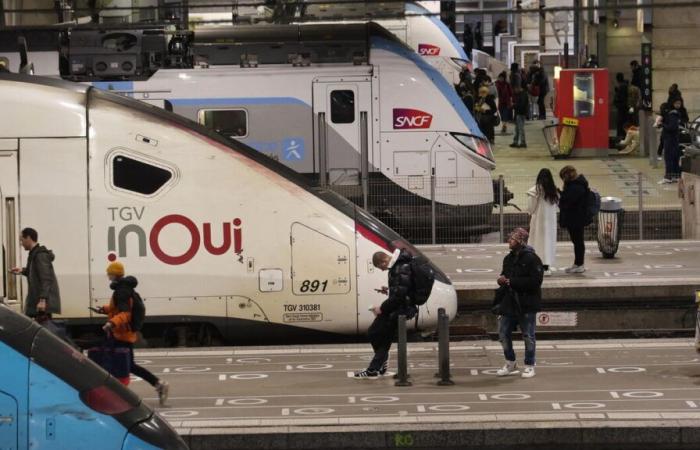The end of the year promises to be tense once again at the SNCF. The four representative unions (CGT Cheminots, Unsa Ferroviaire, SUD Rail, CFDT Cheminots) filed a strike notice this Saturday morning for two dates. First the one, already known, of November 21, the day after the obligatory annual negotiations (NAO) which promise to be difficult. The organizations are also planning a renewable strike for 24-hour periods starting December 11, just two weeks before Christmas and ten days before the school holidays. “We said that November 21 was a warning before a harder and longer movement. We are moving from words to action,” says Julien Troccaz, SUD Rail federal secretary.
Rarely, the four unions are moving forward hand in hand. They agreed “quite easily” on the date and form of the movement. “The government or management will not be able to say that it is the fault of a few unionists or extreme organizations. We are all on the same wavelength and ready to go all the way,” insists a union source. It is not excluded that other sectors, such as the public service, will be added to the days decided by railway workers. “If the organizational strategy corresponds to ours, so much the better,” confides a trade unionist.
The railway organizations hope to mobilize widely in all SNCF entities and exceed the fairly low rates of strikers observed during the pension reform, for example. The demands are multiple. First, they firmly oppose the “dismantling” of Fret SNCF, split into two entities and with the transfer of some of its activities to its competitors, following the opening of an investigation by the European Commission into illegal public aid. The choice of the previous government was ratified by the new one. The unions are demanding, at a minimum, a moratorium judging that “nothing is ready” while the liquidation of the current structure must be declared on January 1st.
The unions also denounce “the privatization of TER, Transilien and Intercités activities”, with the opening of subsidiaries to respond to calls for tenders, as well as “the break-up of SNCF Réseau”. Clearly, they are opposed to the effects of opening up to competition, which is still in its infancy. Finally, the organizations are criticizing the government for setting in stone ambitious multi-year funding for rail.






